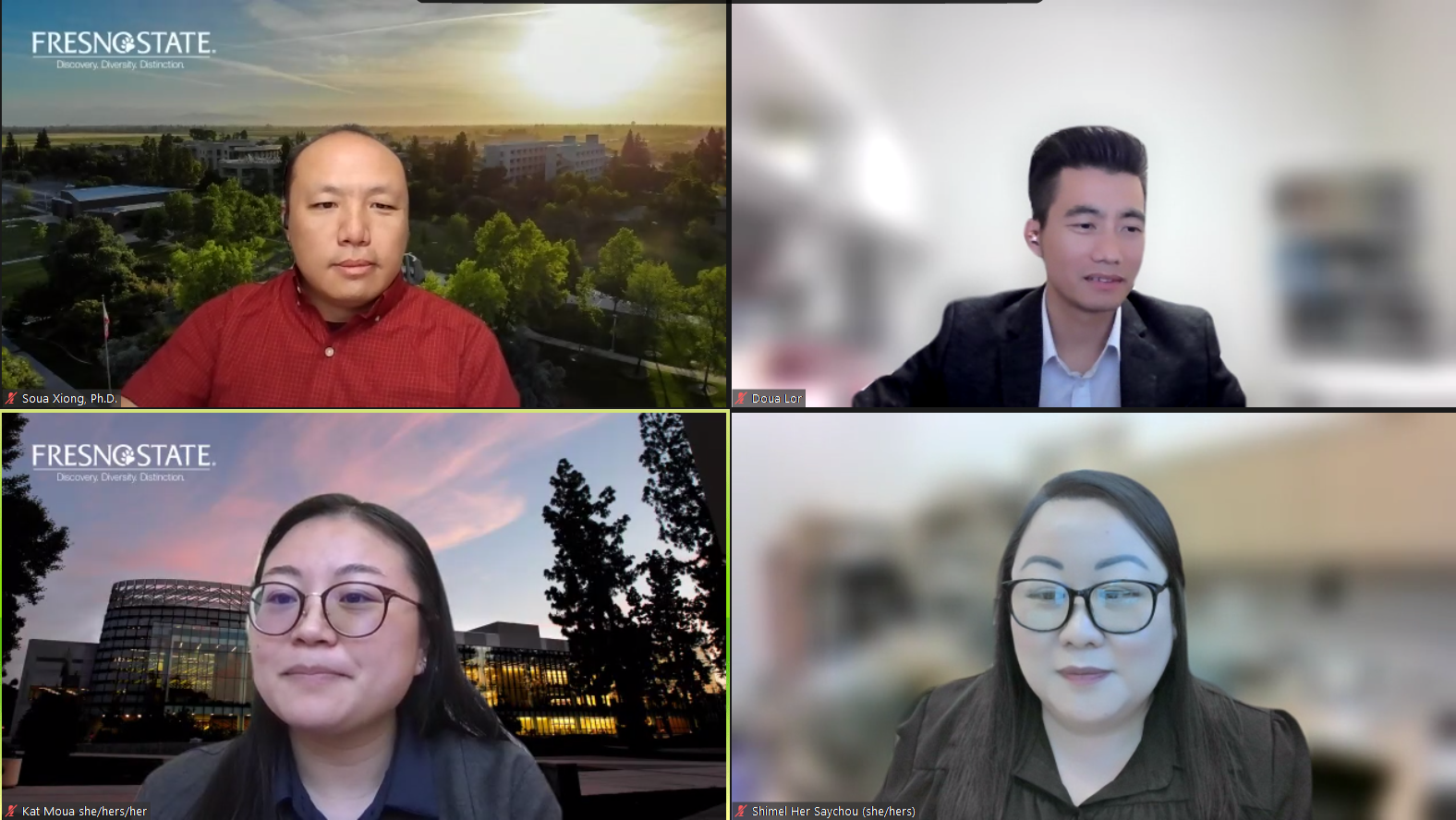The Fresno State Cross-Cultural and Gender Center (CCGC) explored Hmong students’ cultural experiences and difficulties faced in higher education in its latest “Lunch and Learn” series on April 20.
During the event, Fresno State student Yis, who did not provide a translated version of the Hmong name in order to emphasize the Hmong culture, highlighted support groups tailored to help Hmong students bridge cultural gaps in higher education.
“As I began my journey on my path to higher education at a state university, there were many unforeseen obstacles along the way such as difficulty assimilating into the college environment, understanding requirements in each individual career path and what best suited my talents,” Yis said.
Fresno State alumnus Soua Xiong, assistant professor at the Department of Counselor Education and Rehabilitation, and Doua Lor, learning specialist from the University of Arizona, said greater support for Hmong student services is needed.
They also presented data from their own research about student services from a Hmong perspective during the hour long virtual presentation.
The speakers agreed traditionally underrepresented and underserved communities faced higher education with increased difficulty because of unique cultural challenges.
Xiong and Lor said traditional research fails to understand the unique circumstances Hmong students face navigating higher education.
“Instead of asking why so few Hmong students use campus services… We want to focus more on campus services. What are they actually doing to contribute towards Hmong student success?” Lor said.
Lor noted that if universities’ resources were more culturally aware of these difficulties then they can truly begin to help students and earn their trust.
“When it comes to reaching out to the Hmong students on campus, I would say it is going to take some time to establish that trust with them,” Xiong said.
Hmong women, in particular, face unique challenges due to traditional gender roles in their culture, which oftentimes limits Hmong women’s abilities to take advantage of the same resources available to men, according to Lor.
“The expectation for moms and [other] women were that they had to do chores, [they] can’t stay out late [and they’re] limited on experiences in terms of getting professional development or doing extracurricular activities,“ Lor said.
Organizations such as the Hmong fraternity Eta Alpha Gamma or the Hmong Student Association (HGSA) were highlighted for building trust with Hmong students, who were then better able to take advantage of campus resources.
The speakers called for increased cultural sensitivity within the university and said that focusing on being able to understand cultural backgrounds opens the door for traditionally skeptical students to seek aid.
“By connecting with someone who understands their cultural background and experiences, it’s going to address that cultural familiarity and they will have an opportunity to interact with a staff or a colleague,” Xiong said.




